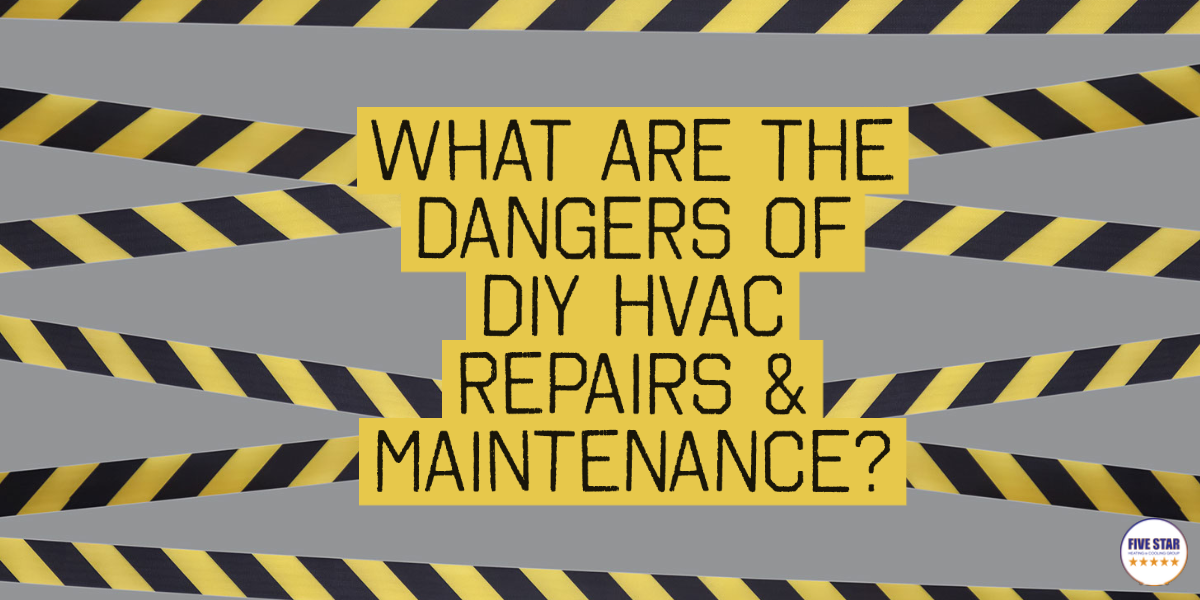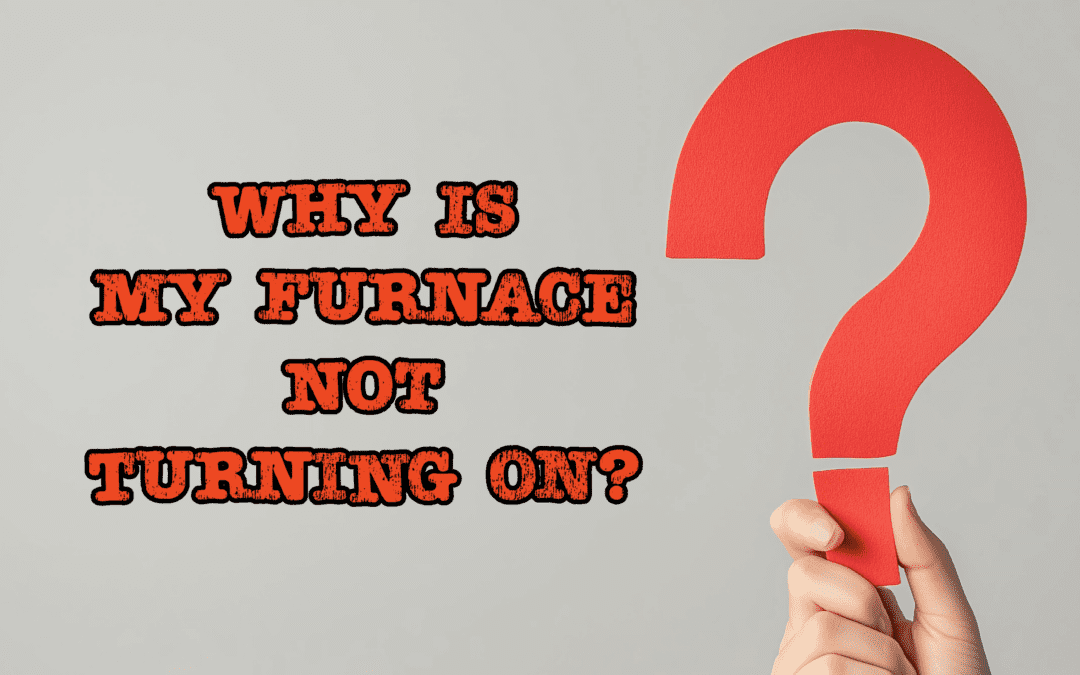As a homeowner, you are presumably well aware of what it takes to maintain a home. You might even have had some experience fixing an occasional household repair. However, when it comes to your HVAC system, it is important that only a licensed service professional such as Five Star Heating & Cooling Group handle your HVAC system. When a DIY repair is done on either of your heating or cooling units, quite a few things can go awry. For this reason, we want you to be aware of the dangers and risks involved in performing a DIY repair on your residential HVAC system.
What are the Dangers Involved in DIY HVAC Repair?
There are so many components that make up your HVAC system. Therefore, various hazardous materials can lead to high-risk situations compromising your and your family’s safety. It is absolutely crucial for these materials and substances to be handled properly. Otherwise, repercussions can be detrimental in regards to your safety. Examples of potential safety hazards can be (but are not limited to):
- Poisoning from carbon monoxide and natural gas inhalation
- House fires or explosions due to faulty wiring or from flammable substances like gas or oil from a furnace
- Electrocution from faulty wiring or mishandling during the DIY HVAC repair
What Way Does DIY HVAC Repair Affect Your System’s Efficiency?
It’s a risky business choosing to do an HVAC repair yourself. The smallest mistake can result in long-term damage that will reduce the overall efficiency of your HVAC system. While you are zoned in on repairing one component of the unit, it may raise another concern in a different part of the HVAC system. In the end, though you might feel like you have fixed the initial issue; however you will be paying more to keep up with the spike in energy costs because of your system’s efficiency decrease. The good news is that all of our technicians are NATE-certified at Five Star Heating & Cooling Group. They are appropriately trained regarding safety protocol and regulations. So when you book an appointment with us, you get a friendly and knowledgeable technician sent to your home to quickly and efficiently resolve the issue.
What Tools and Parts are Needed for Proper HVAC Repair?
Are you still set on attempting the repair yourself? Have you considered whether you have all the proper tools and parts to complete the job? It is likely that you don’t have all the necessary tools. And unfortunately, if you are planning on buying them, most HVAC tools and parts are not readily available at any ole’ hardware store. Luckily, all of our technicians have access to the specific tools and parts required to fix a malfunctioning HVAC system. So fixing your system in a timely manner is no issue for us!
What Happens to Your Manufacturer’s Warranty?
Next, think about your HVAC system’s warranty. If you have not done so already, be sure to read the fine print in your warranty. Most manufacturers indicate in their policies that if a DIY repair of any sort is performed on the unit, the warranty will be immediately voided. This is definitely something we believe homeowners should consider when thinking about tackling a DIY repair.
What Projects & Preventative Maintenance Can You Do?
If you consider yourself a jack of all trades, you might just be one of those people who genuinely enjoys taking on a project by yourself. If this is the case, there are still a few tasks you can do to keep your system running smoothly and efficiently.
- Air Filters- Change your air filters out regularly. Our expert technicians say air filters should be changed every 30-60 days. Doing this prevents any clogs from dust and other airborne particles from building up and blocking airflow. As a result, a clean air filter enables your HVAC system to do its job correctly, thus prolonging its lifespan. Air filters can be purchased at any home improvement store. Just be sure to grab the correct size!
- Thermostat- There are a couple of things you can do concerning your thermostat. First, keep it free from residue and dust buildup. You want the buttons on the thermostat to function correctly, and dust buildup can potentially keep it from doing that. Another thing you can do every so often is to check and see if the different settings on your thermostat are functioning fine. Give your HVAC system some time to see if it responds to the change in temperature or system settings.
- Insulation- The insulation in your home should be the appropriate amount of thickness for it to do its job right. Industry professionals say that insulation in an attic, crawl spaces, and any other areas where insulation is installed needs to be 10-14 inches thick. You can perform a quick inspection to see if any of these areas within your home could use a couple of additional insulation layers. If so, this is a project you can safely take on if desired.
Now that you know the dangers and risks involved with DIY HVAC repairs and maintenance, we hope you will allow us to provide our five-star customer service. So if you have been searching for a trusted local heating and cooling company, look no further! We’ve you covered! Let us show you what it means to experience the five-star difference! Call Five Star Heating & Cooling Group today at (614) 490-7550, or schedule an appointment online now by clicking here!







